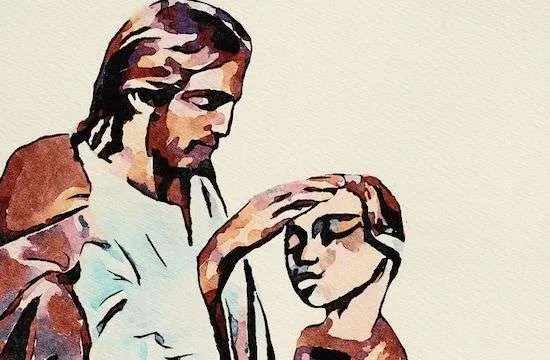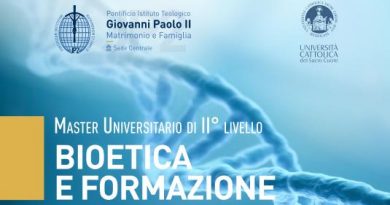No one can be denied a blessing
By Clémence Houdaille
Mgr Philippe Bordeyne, the president of the Rome-based Pontifical John Paul II Institute for Studies on Marriage and the Family, says a blessing is not aimed at validating a particular way of life. Rather, it’s a way of manifesting the good that God wants for humanity.
The 62-year-old French theologian, who was rector of the prestigious Institut Catholique in Paris from 2011-2021, explained to La Croix’s Clémence Houdaille.
Does giving a blessing necessarily validate a practice?
“I don’t think it is right to introduce a notion of evaluation or validation into a blessing. A blessing is a prayer addressed to God, to praise God, to ask God for help and protection. It concerns people, and possibly also objects in their relationship to people… But its role is not to validate a practice. To bless, however, is to manifest the good that God “says” about people and that God wants for them. In everyday language, to say “it is right” or “it is wrong” is to judge. But in the Bible, what is good precedes what is right: “God saw that it was good” (Gen 1).
A note from the Dicastery for the Doctrine of the Faith last year, however, declares “illicit any form of blessing that tends to acknowledge (the) unions” of homosexuals.
“The request for a blessing may contain a request for recognition addressed to the community or institution. In this case, it takes on a dimension of an appeal, a protest, or even a claim. One asks God for what one has not been able to obtain from the Church. In the Gospel, the blind man Bartimaeus is rebuked by the disciples who tell him to be quiet when he begs Jesus: “Son of David, have pity on me!” Jesus’ attitude forces the disciples to convert: “Courage, get up, he is calling you.”
Behind the request for a blessing, there is often the same thirst for inclusion.Apart from this request for validation of practices, is a request for a blessing therefore legitimate?
“No one can be deprived of God’s blessing. Like all true prayer, the blessing invites us to recognize our fragility. This is the opposite of a self-validation process.We see this in the parable of the publican and the pharisee. The latter is in the process of self-justification: “I am better than others.” While the publican begs: “Have mercy on me for I am a sinner”. The blessing that accompanies a sacrament also adjusts the way we look at it. It insists on the fact that despite the strength that the sacrament gives, there remains the poverty and the fragility of each person to live out what comes from it. Hence the need for an appropriate accompaniment that gives meaning to the blessing.
How do you see the specific request for blessing homosexual couples?
“The sacrament of marriage unites a man and a woman. The blessing of a same-sex couple, precisely as a couple, would be too much like the blessing that follows the exchange of consent in the sacrament. On the other hand, people can still be blessed. Remember, a blessing is never intended to validate a lifestyle. The fact that homosexuals ask the Church to bless them invites us to listen to them, to enter into the complexity of their story and their situation. Jesus ate with sinners, conversed with a Samaritan woman, let himself be touched by the cry of a blind man… His freedom reawakened the desire for God in these people. Let’s be realistic: not all people who cannot marry have the capacity to live alone. Are they not entitled to the support of the Church on their journey of faith and conversion? We must dare to be pastorally creative.In a discreet and supportive way on the personal level, a blessing is a tangible sign of God’s closeness through the availability of a minister of the Church, lay person, deacon, priest or bishop”.
Read more at INTERNATIONAL LA CROIX





